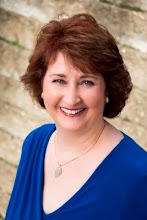
“I apologize for such a long letter - I didn't have time to write a short one.”
― Mark Twain
We are so fortunate to be speaking and writing in the English language, aren’t we? It is so rich in vocabulary deposited on a tiny island by its ancient settlers and invaders. Of course, England then went on an invading spree of its own to the four corners of Mother Earth, adding much more!
Thanks to its two main streams of head-based (Latin) and emotion-based (Anglo-Saxon), we can be both bellicose and warlike, have women and ladies, females and damsels, girls and gals.
Add a deposit of riches via two genius Bards, Shakespeare and Robert Burns. We now have new words and phrases a like: “accused,” “assassination,” “dwindle,” “rant,” “mimic” and “zany,” “the best-laid plans of mice and men” and “there is no such uncertainty as a sure thing.” And, heaven help us, “haggis.”
Speak the speech, I pray you, as I pronounc'd it to you, trippingly on the tongue.
--William Shakespeare
Our English has goulash (Hungary) galore (Gaelic)! Perhaps even an embarrassment of riches? (thank you, John Ozell's translation of a French play, L'Embarras des richesses (1726)).
With all this richness and specificity you’d think we’d be more careful. You’d be wrong.
Readers get stopped dead by words that mean nothing or are place-holders for “ummm.” Honor our language! Don’t use them! Here are some of my deadliest...
- So This word is a verbal devise that has taken over from “Well…” as a space holder. Please don’t start a sentence with “so”…. it means nothing!
- Pretty This overused adjective can now signify that one is even“pretty ugly.” It means…you guessed it, pretty much nothing.
- Actually This has come from stating a fact to mean a change of mind, as in “Waiter, actually, I’ll have the Merlot not the Pinot Noir .“(good choice, by the way!) But try practicing, “Waiter, change of plan…”, won't you?
- Just, very, really, quite…JUST stop using these! They are REALLY QUITE annoying! VERY bad writer! You are weakening a strong language! Take then out of the sentences above and read aloud. Stronger, right?
- Literally As in: “It’s literally hot as hell out there.” You mean figuratively, but don’t use either, I beg you!
- Stand up Leave out the up…how else does one stand? Down of course, used only when you mean relax or withdraw.
- Due to the fact that Yikes, are you being paid per word?? Way to much congestion and your sentence hasn’t even stated yet! “Due” alone is fine!I’m sure you have your own pet peeves. Bring them forth, dear readers! Join the effort to de-clutter our beautiful language!
































.jpg)
.png)